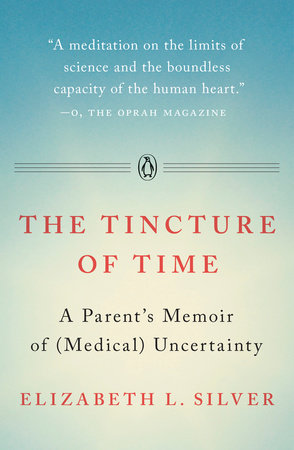The Tincture of Time Reader’s Guide
By Elizabeth L. Silver


1. What does the word “uncertainty” mean to you? What about uncertainty in a specifically medical context?
2. The book is divided into three parts: Acute, Sub-acute, and Chronic Uncertainty. How does this structure inform the narrative?
3. Memory—in particular, its mutability—is a theme that runs consistently through the book. Can you think of an event or period that you and a loved one have remembered entirely differently? What is your way of keeping the memory of particular events or people alive?
4. What was your reaction to the scenes in which a social worker asks Elizabeth and her husband a series of sensitive questions about their care of Abby (pp. 49-52)? If you were the social worker, how might you have gone about getting answers to these questions? If you were the parent, how might you have reacted?
5. How does feminism play into the narrative? Does gender make a difference in medical situations or situations of trauma in general?
6. Elizabeth writes at length about her feelings of guilt with respect to Abby’s injury. How much does guilt play into our decisions as parents in and out of medical contexts?
7. What do you make of the role that religion plays in this narrative, particularly the scene of the Jewish “bake sale” (pp. 107–114)?
8. Writing about Abby’s trauma and treatment was an important coping mechanism for Elizabeth. What are the different strategies you use to cope with challenging or painful situations?
9. How much do you rely on statistics in medical contexts? Do you find that they hurt or help?
10. Elizabeth is conflicted about the idea of describing Abby as a “survivor.” What does that word mean to you, and how might it affect one’s sense of self?
Just for joining you’ll get personalized recommendations on your dashboard daily and features only for members.
Find Out More Join Now Sign In